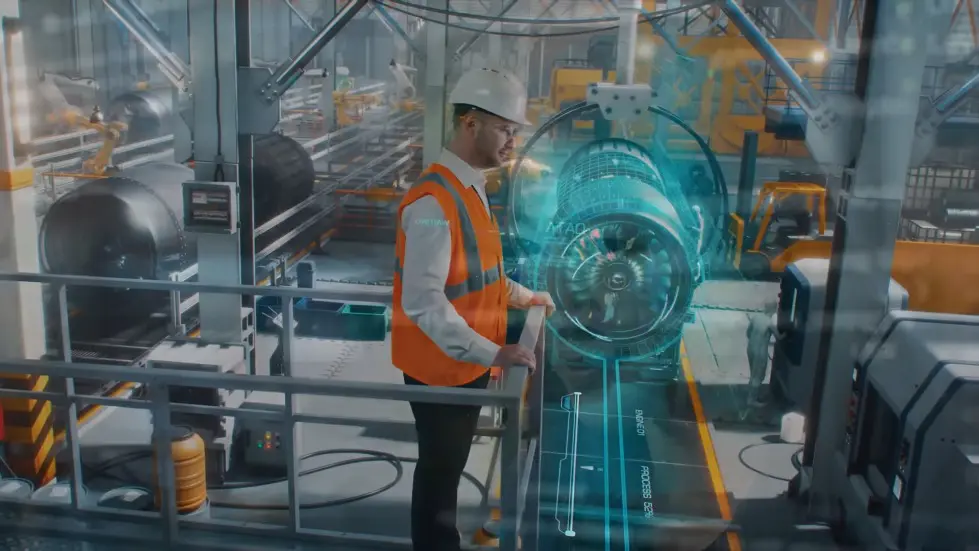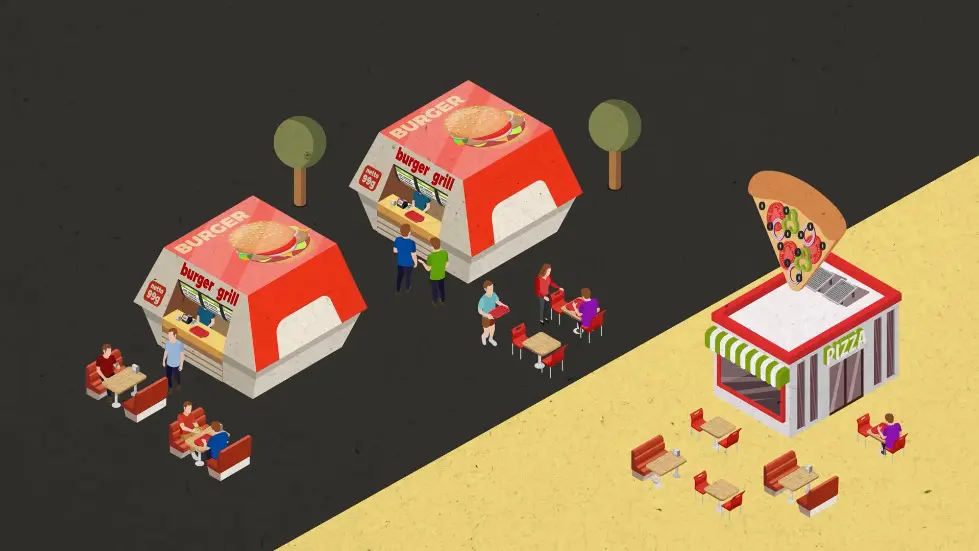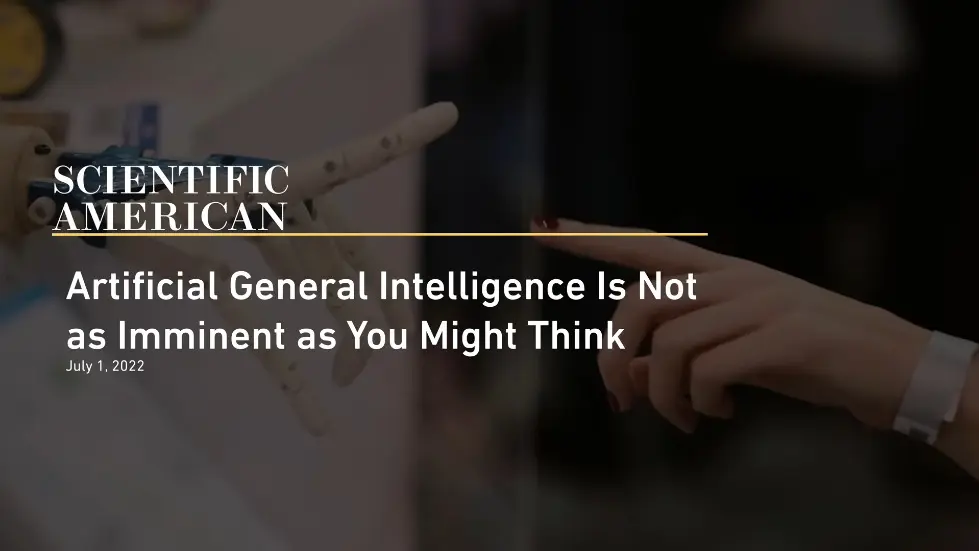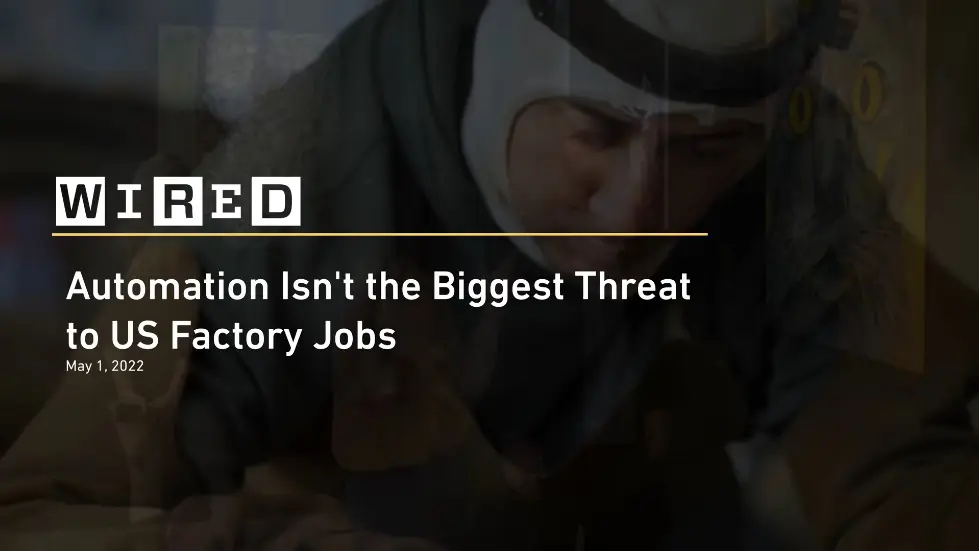Capitalism Doesn't Need Consumers | Economics Explained
Last updated: May 28, 2023
The video discusses the potential impact of artificial intelligence and automation on the economy, including the possibility of a future where humans have nothing of value to provide and the need for alternative economic systems such as universal basic income.
The video discusses the potential impact of artificial intelligence on the economy and the workforce.
While automation may cause job loss, it may also increase productivity and prosperity. The video explores the idea of a universal basic income as a solution to the negative effects of automation on employment.
The video also highlights the importance of consumer spending in determining what goods and services are produced in the economy.
The video concludes by discussing the potential consequences of a future where machines are the primary source of economic value.
- Automation and AI are a concern for economists and the public.
- There is speculation about the future when the economic value of most people is negative.
- Universal basic income is a popular proposal to provide income for people who lose their jobs to automation.
- Consumers play an important role in modern economies, but current systems don't care about people who don't produce value.
- Alternative economic systems, such as universal basic income and resource-based economy, need to be considered.
- Automation could lead to limited or no income for most people, with goods and services shifting to high-end products for the wealthy.
- Historical examples of machines replacing human labor have not led to high unemployment rates, but declining birth rates in advanced economies could be a concern.
Capitalism Doesn't Need Consumers | Economics Explained - YouTube

Introduction
- Artificial intelligence and automation are a concern for economists and the general public.
- There is speculation about what a future will look like when the economic value of most people is negative.
- Humans will still need to eat, drink, and be housed, but if they can't produce anything to earn their keep, they will ultimately be relying on the generosity of some entity to provide these goods and services for them for nothing in return.
- Understanding the true economic implications of this kind of future might simultaneously make us all less anxious about the short term and more anxious about the long term.

Impact on Jobs
- Nobody really knows how long it will take or if it will even happen at all, but there is understandably still a lot of speculation about what happens to our jobs once machines can perform them better than we can.
- Automation can still cause a lot of problems, and one of the ones that people are most worried about is what happens to our jobs once machines can perform them better than we can.
- If machines and artificial intelligence take all of our jobs, then nobody would have any income to buy the goods and services that these machines were producing.
- The most popular proposal is a universal basic income, which is a guaranteed payment made to everybody in the economy so that they can continue to live and most importantly consume.
- The money to fund these payments would be raised by taxing the companies making trillions of dollars off their fully automated supply of goods and services.

Role of Consumers
- Consumers play a very important role in our modern economies.
- Spending basically works as a voting system to determine what goods and services get provided and what ones don't.
- Giving consumers a way to store value and use it to decide what is provided is one of the most effective ways to make sure the economy is providing optimal outcomes for all participants.
- Our current economic systems don't care about the decisions of people that don't produce value.
- Our current advancements in technology are pushing us close to a time where we will need to seriously answer these questions.

Capitalism Doesn't Need Consumers | Economics Explained - YouTube
Alternative Economic Systems
- If humans have nothing of value to provide, our economic systems still need to work.
- One alternative economic system is a universal basic income.
- Another alternative economic system is a resource-based economy, where resources are managed and distributed based on the needs of the population.
- There are pros and cons to each alternative economic system, and it is up to society to decide which one to implement.
- It is important to start thinking about alternative economic systems now, before it is too late.

Potential Impact of Automation on the Economy
- Companies that invest in automation will outcompete those that don't.
- Unemployment could reach 100% in a decade.
- People will have to rely on welfare to afford anything.
- Welfare could be funded by taxes raised on fully automated companies.
- Companies could set up operations in countries with the best tax deals, making it difficult to fund welfare through regular tax revenues.
- Governments could tax land as a factor of production, but this would also tax the population without jobs.

Possible Future with Limited or No Income for Most People
- Profit-driven companies could replace their entire workforce with machines.
- Large parts of the population could have limited or no income.
- Companies could sell goods and services to the few people that own the companies.
- The lives of the wealthy few would become extraordinarily luxurious.
- Goods and services would shift from everyday consumer products to high-end goods for the wealthy.
- People could starve to death because there's no economic incentive to provide them with basic essentials.

Market Forces and Declining Birth Rates
- Advanced economies with highly capital-intensive industries have fewer children.
- Advanced economies are only maintaining their populations through immigration.
- Birth rates are declining because it's no longer economically advantageous to have children.
- As it becomes cheaper to use machines, advanced economies will probably see further declines in birth rates.
- Developing and undeveloped countries will take longer to replace labor with machines because their wages are lower.
- Experts say human-level artificial general intelligence is at least a few decades away.

Historical Examples and Current Trends
- Historical examples of machines replacing human labor worried people, but most major economies have record low unemployment rates.
- New technologies have made workers more productive.
- Research for videos is done using the internet and search engines.
- There is no reason to think that things will be different this time.
- Experts in the field are mostly saying that human-level artificial general intelligence is at least a few decades away.
- People shouldn't feel too safe or too worried yet.

The Role of AI and Automation in the Future Economy
- Productivity is how much value a worker produces for the economy in a given hour of work.
- AI and automation are just tools for people to use to increase how much output they can produce in a given hour of work.
- As populations get older and more pressure is put on a smaller group of young workers to support economic prosperity, tools that can help them do more with less are something to be excited for and not fearful of.
- Even in the worst-case scenario, fear is unlikely to do any good because nobody can predict which jobs are going to go first.
- New technologies are already creating new jobs that didn't exist before, and people who can use these tools effectively will make themselves and the wider economy much wealthier.
- AI prompt writer is a job that may exist in the not-too-distant future, and people who can use these tools effectively in jobs like this will make themselves and the wider economy much wealthier.
Watch the video on YouTube:
Capitalism Doesn't Need Consumers | Economics Explained - YouTube
Read also:
- Economic Update: The Emerging New World Economy (mindbrave.com)
- Viral Influencer Gloria Alvarez Fights Socialism (mindbrave.com)
